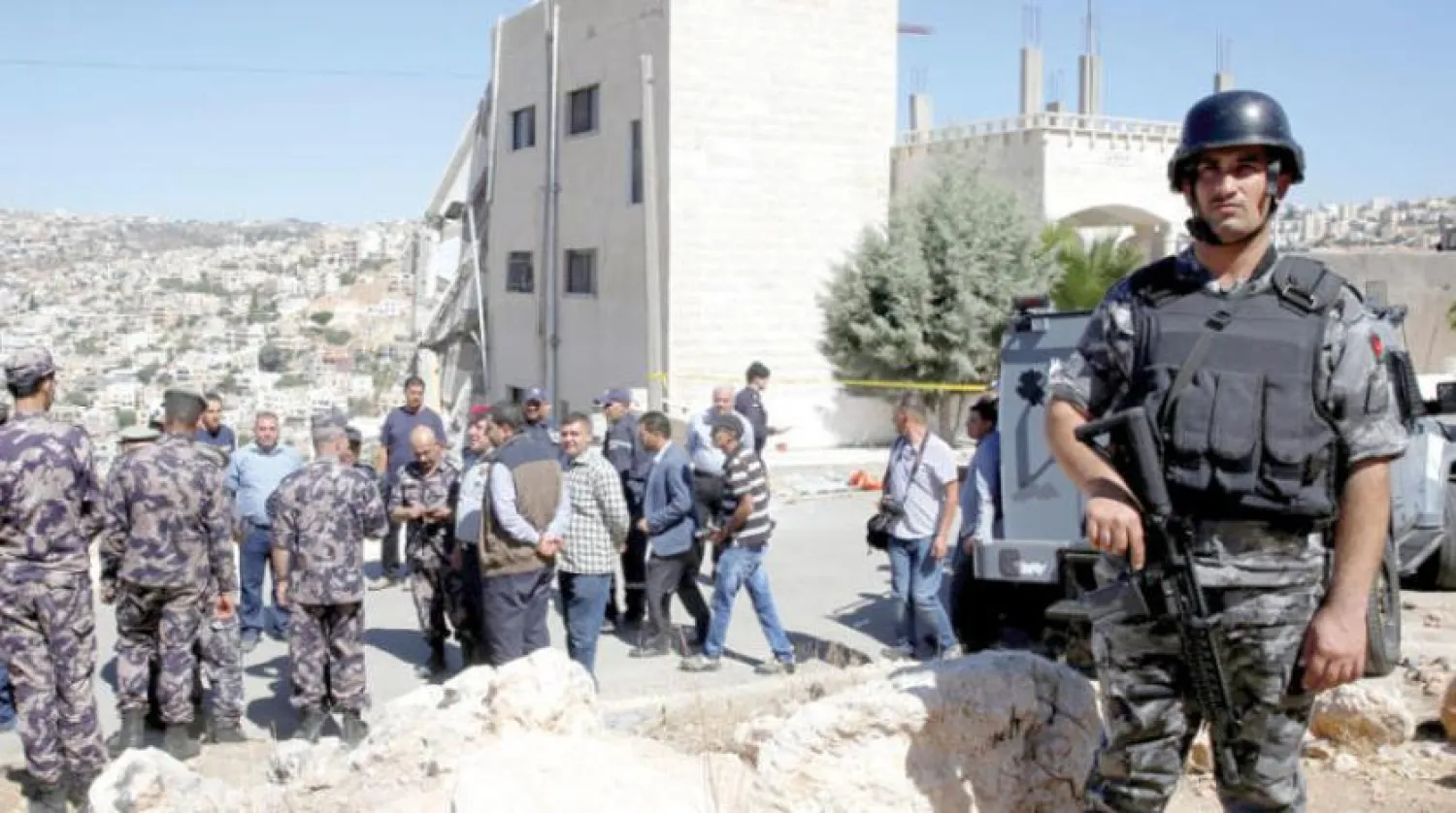Members of a terrorist cell, who carried out a bombing in the town of Fuheis near the capital Amman on August 9, have admitted to planning for bigger attacks, including attempts to target a military base with a drone.
The country’s General Intelligence Department (GID) said Friday that during confessions, the terrorists who were arrested in a joint gendarmerie and police raid in the city of Salt, northwest of Amman, admitted to having had the intention to carry out a series of operations across the Kingdom just after the Fuheis attack with a homemade explosive device planted near a police van, which killed a policeman and injured six others.
Investigators learned that the cell bought guns and ammunition and was planning to target the GID branch in Salt, among other intelligence and military locations.
The cell plotted to attack police stations and patrols, as well as civilians. However, the plot was thwarted by the GID and other security services in its early stages.
Investigations showed that the terrorists had recently embraced the takfiri ideology promoted by ISIS terror group.
A clip aired on national television featured segments of interviews conducted with the terrorists and revealed details about how they met, who led the group and what they planned to do.
Mahmoud Ensour, one of the suspects, said members of the cell knew each other from school and used to smoke pot together.
Another member of the cell, Mahmoud Hiyari, said the network had prepared more than 55 kilograms of homemade explosives and decided to target the patrol in Fuheis, “because it was protecting infidels.”
Anas Saleh, one of the detainees, said he secured Ahmad Odeh, the group’s mastermind, with 2,000 Jordanian dinars to build a remote-controlled drone-like machine to carry out the bombings.
“I asked a member of the cell to build a big engine that allows the drone to carry around 10 kilograms of explosives and target military positions,” Hiyari confessed.









